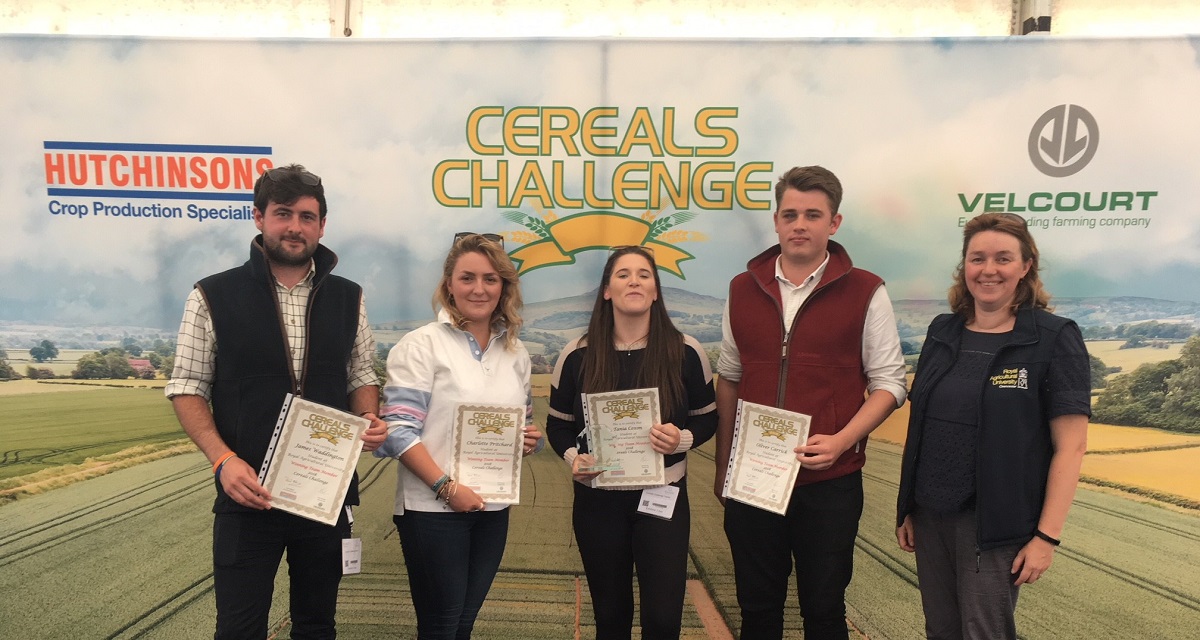Beating the ‘Beast from the East’ sees RAU students win the 2018 Cereals Challenge

18 Jun 2018
Four RAU students have won this year’s coveted Cereals Challenge prize, after growing the best ‘virtual’ wheat crop under a series of tough conditions.
The team beat competition from Nottingham University, Newcastle University, Harper Adams University and Writtle University College to take the title at the Cereals 2018 arable event.
Tania Coxon, Charlotte Pritchard, James Waddington and Oliver Carrick, supported by Dr Nicola Cannon, were set the task of growing the best crop of winter wheat in one the most testing seasons since the Challenge was launched nine years ago.

The virtual plots meant there was no geographical bias for teams closer to this year’s Cereals site at Crishall Grange Farm, Duxford, Cambridge.
The wheat plots were grown and managed just as in real conditions, from choosing which variety to grow, cultivation and drilling details through to making the real-time agronomy decisions on inputs.
Hutchinsons Crop Production Specialists run the competition alongside farm management advisors Velcourt, with the £1000 first prize to be shared between the winning team. An award of £500 also goes to the University. Previous winners have gone on to join both companies in their training programmes.
During the course of the season the teams were presented with crop updates via a video blog on the Hutchinsons facebook page. Technical manager and soil health expert, Dick Neale and Velcourt’s technical director Keith Norman reflected what a difficult season real crops have faced, posing questions on keeping crops clean and standing whilst remaining cost-effective.
The Royal Agricultural College decided to include SDHI fungicide at T1 and T2 on their crop of Siskin - “although timings so far have not been as accurate as we would have liked” said team leader Tania Coxon during the competition.
The final task in this year’s Challenge involved writing a technical piece on Farm Diversification where land is no longer viable for profitable cropping, to a standard suitable for publication on a farming website. Diversification options such as wine making, mob grazing grass leys and building a reservoir have been offered up as alternatives.
Chris Brough, Head of the RAU’s Centre for Agriculture said: “Closer consideration of this year’s bouts of the Beast from the East gave the team the edge, as this has been a particularly challenging growing season. The team was skilfully guided to carefully consider their recommendations to nurture the crop through the difficult early spring conditions. This meant that they were able to respond to the season by considering every aspect of the crop’s requirements; managing lodging, disease and nutrition to keep the crop healthy, as well as making the best marketing decisions.”
Dr Nicola Cannon, Principal Lecturer in Agronomy, added: “The team did a fantastic job and made logical and justified crop management decisions which they had to adjust and modify in order to cope with the weather conditions. I am really proud of their determination to be the best - they were strong and dedicated throughout.”